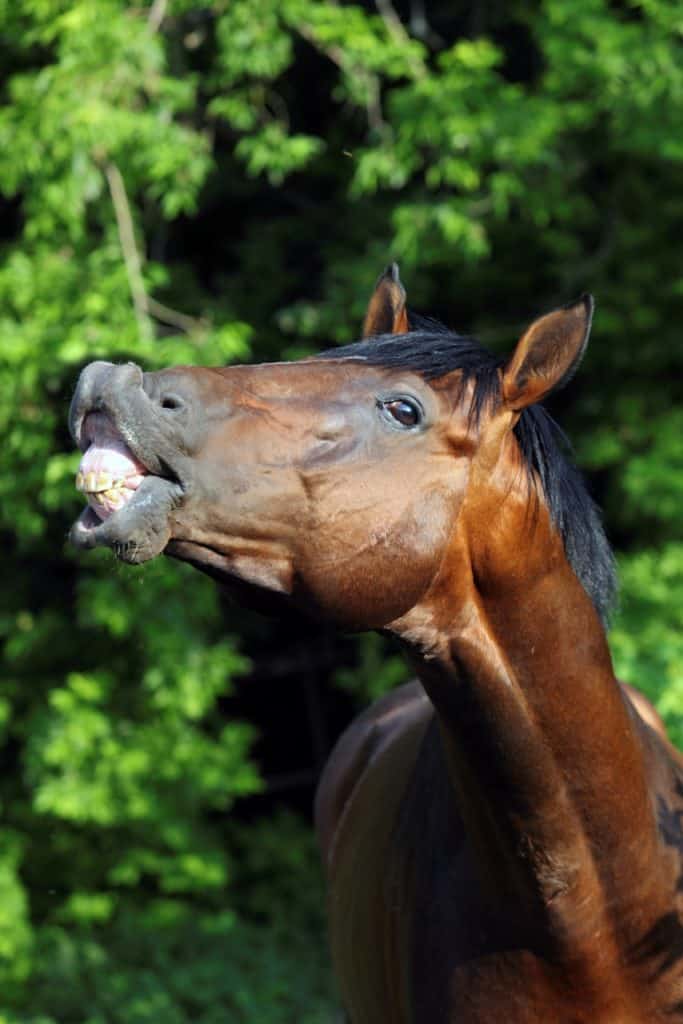
Could Air-Dried Semen Produce Equine Embryos?
Researchers determined that air-dried sperm can be kept for up to four weeks before being used to produce an embryo.

Researchers determined that air-dried sperm can be kept for up to four weeks before being used to produce an embryo.

Researchers determined that acyline can reduce stallion testosterone concentrations to as low as those of geldings.

Stallions with access to each other through stall walls interacted frequently with a “surprisingly low” injury rate.

Study stallions bred quickest if they had the scent of urine from mares in heat on their nostrils.

What you need to know and expect when using this breeding method.

Post-mortem exams are crucial to determine what caused the abortion. Here’s what your veterinarian will look for.

The month of the year appears to have a significant impact on several parameters of collected semen in stallions.
Seminar topics include imaging the equine neck, reproduction, and soft-tissue injuries in performance horses.

For gelding, postoperative problems can range from mild swelling to devastating intestinal prolapse.

Equine reproduction specialist Dr. Etta Bradecamp overviews obstacles related to breeding performance mares and stallions.

Cryopreserved epididymal sperm can be valuable if a stallion will be castrated or if he dies unexpectedly.

Reproductive tract injuries can result in the presence of blood in a stallion’s ejaculate, called hemospermia.

A recap of studies on topics ranging from prostaglandin treatment of mares to semen quality in stallions.
Confirmed diseases include vesicular stomatitis, herpesvirus, influenza, Getah virus, and strangles, among others.

Longer light exposure appears to have numerous effects, from prompting coat shedding to increasing bone mineral density.

Learn about the steps vets and stallion managers can take to help improve the quality of cooled and frozen semen.
Stay on top of the most recent Horse Health news with
"*" indicates required fields